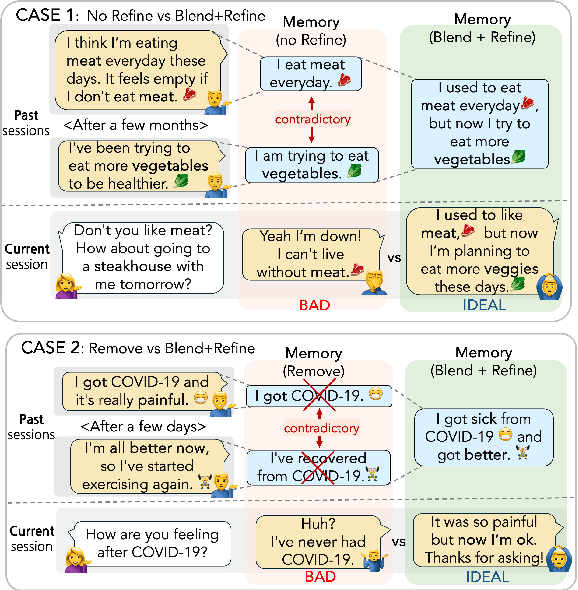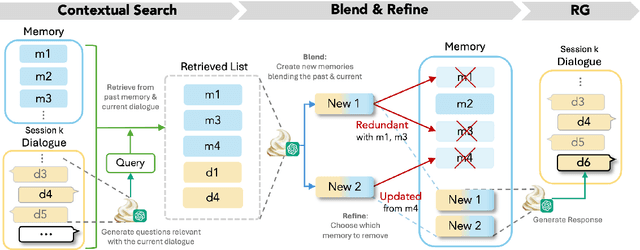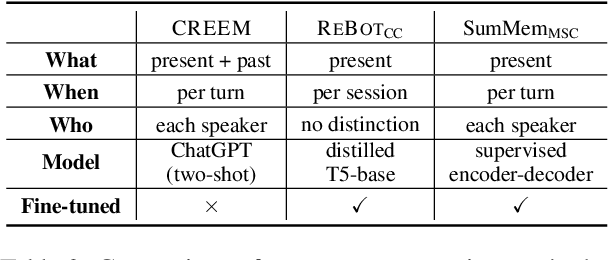Keummin Ka
A.X K1 Technical Report
Jan 15, 2026Abstract:We introduce A.X K1, a 519B-parameter Mixture-of-Experts (MoE) language model trained from scratch. Our design leverages scaling laws to optimize training configurations and vocabulary size under fixed computational budgets. A.X K1 is pre-trained on a corpus of approximately 10T tokens, curated by a multi-stage data processing pipeline. Designed to bridge the gap between reasoning capability and inference efficiency, A.X K1 supports explicitly controllable reasoning to facilitate scalable deployment across diverse real-world scenarios. We propose a simple yet effective Think-Fusion training recipe, enabling user-controlled switching between thinking and non-thinking modes within a single unified model. Extensive evaluations demonstrate that A.X K1 achieves performance competitive with leading open-source models, while establishing a distinctive advantage in Korean-language benchmarks.
InfoCausalQA:Can Models Perform Non-explicit Causal Reasoning Based on Infographic?
Aug 08, 2025Abstract:Recent advances in Vision-Language Models (VLMs) have demonstrated impressive capabilities in perception and reasoning. However, the ability to perform causal inference -- a core aspect of human cognition -- remains underexplored, particularly in multimodal settings. In this study, we introduce InfoCausalQA, a novel benchmark designed to evaluate causal reasoning grounded in infographics that combine structured visual data with textual context. The benchmark comprises two tasks: Task 1 focuses on quantitative causal reasoning based on inferred numerical trends, while Task 2 targets semantic causal reasoning involving five types of causal relations: cause, effect, intervention, counterfactual, and temporal. We manually collected 494 infographic-text pairs from four public sources and used GPT-4o to generate 1,482 high-quality multiple-choice QA pairs. These questions were then carefully revised by humans to ensure they cannot be answered based on surface-level cues alone but instead require genuine visual grounding. Our experimental results reveal that current VLMs exhibit limited capability in computational reasoning and even more pronounced limitations in semantic causal reasoning. Their significantly lower performance compared to humans indicates a substantial gap in leveraging infographic-based information for causal inference. Through InfoCausalQA, we highlight the need for advancing the causal reasoning abilities of multimodal AI systems.
THEANINE: Revisiting Memory Management in Long-term Conversations with Timeline-augmented Response Generation
Jun 16, 2024



Abstract:Large language models (LLMs) are capable of processing lengthy dialogue histories during prolonged interaction with users without additional memory modules; however, their responses tend to overlook or incorrectly recall information from the past. In this paper, we revisit memory-augmented response generation in the era of LLMs. While prior work focuses on getting rid of outdated memories, we argue that such memories can provide contextual cues that help dialogue systems understand the development of past events and, therefore, benefit response generation. We present Theanine, a framework that augments LLMs' response generation with memory timelines -- series of memories that demonstrate the development and causality of relevant past events. Along with Theanine, we introduce TeaFarm, a counterfactual-driven question-answering pipeline addressing the limitation of G-Eval in long-term conversations. Supplementary videos of our methods and the TeaBag dataset for TeaFarm evaluation are in https://theanine-693b0.web.app/.
Ever-Evolving Memory by Blending and Refining the Past
Mar 03, 2024



Abstract:For a human-like chatbot, constructing a long-term memory is crucial. A naive approach for making a memory could be simply listing the summarized dialogue. However, this can lead to problems when the speaker's status change over time and contradictory information gets accumulated. It is important that the memory stays organized to lower the confusion for the response generator. In this paper, we propose a novel memory scheme for long-term conversation, CREEM. Unlike existing approaches that construct memory based solely on current sessions, our proposed model blending past memories during memory formation. Additionally, we introduce refining process to handle redundant or outdated information. This innovative approach seeks for overall improvement and coherence of chatbot responses by ensuring a more informed and dynamically evolving long-term memory.
 Add to Chrome
Add to Chrome Add to Firefox
Add to Firefox Add to Edge
Add to Edge